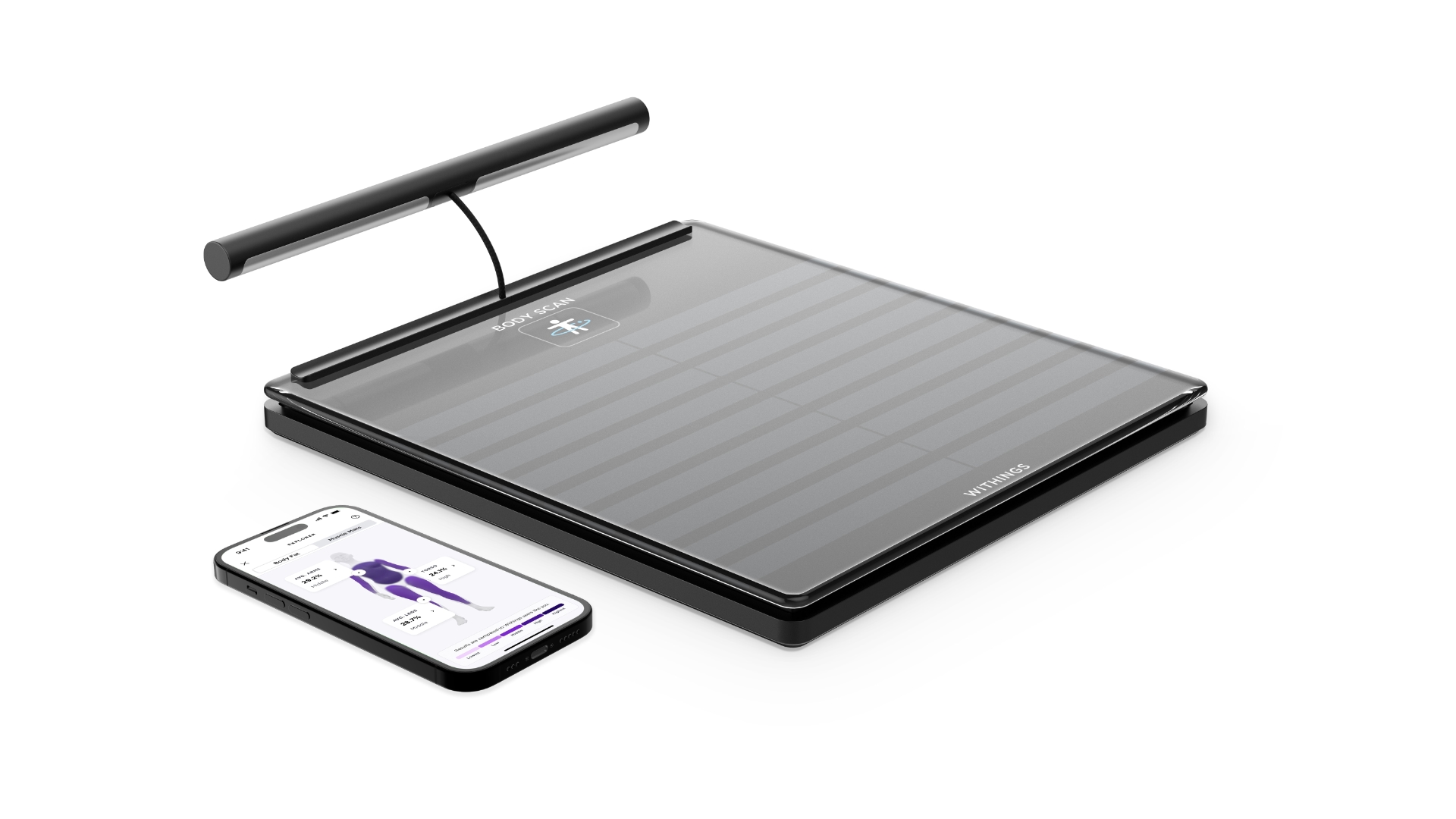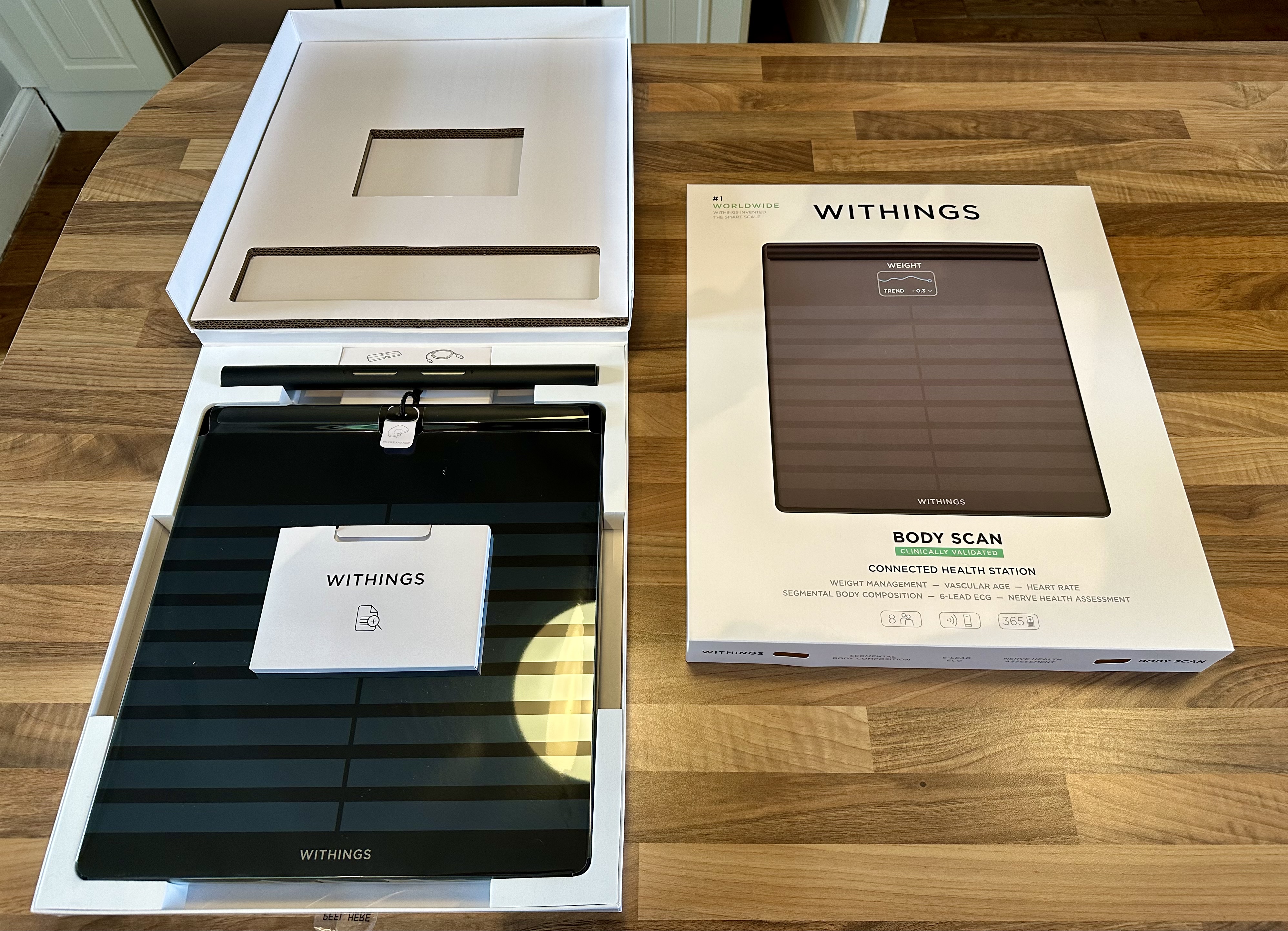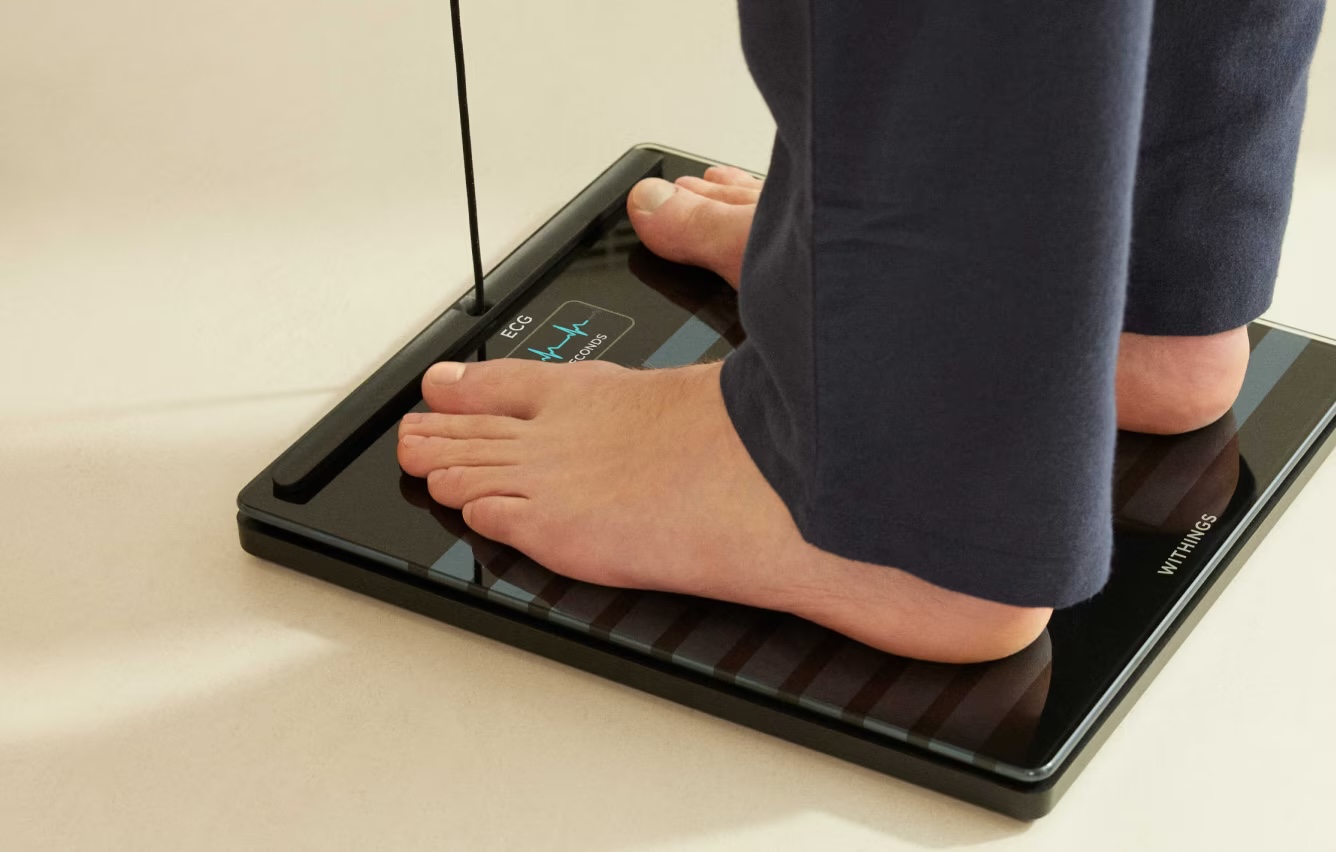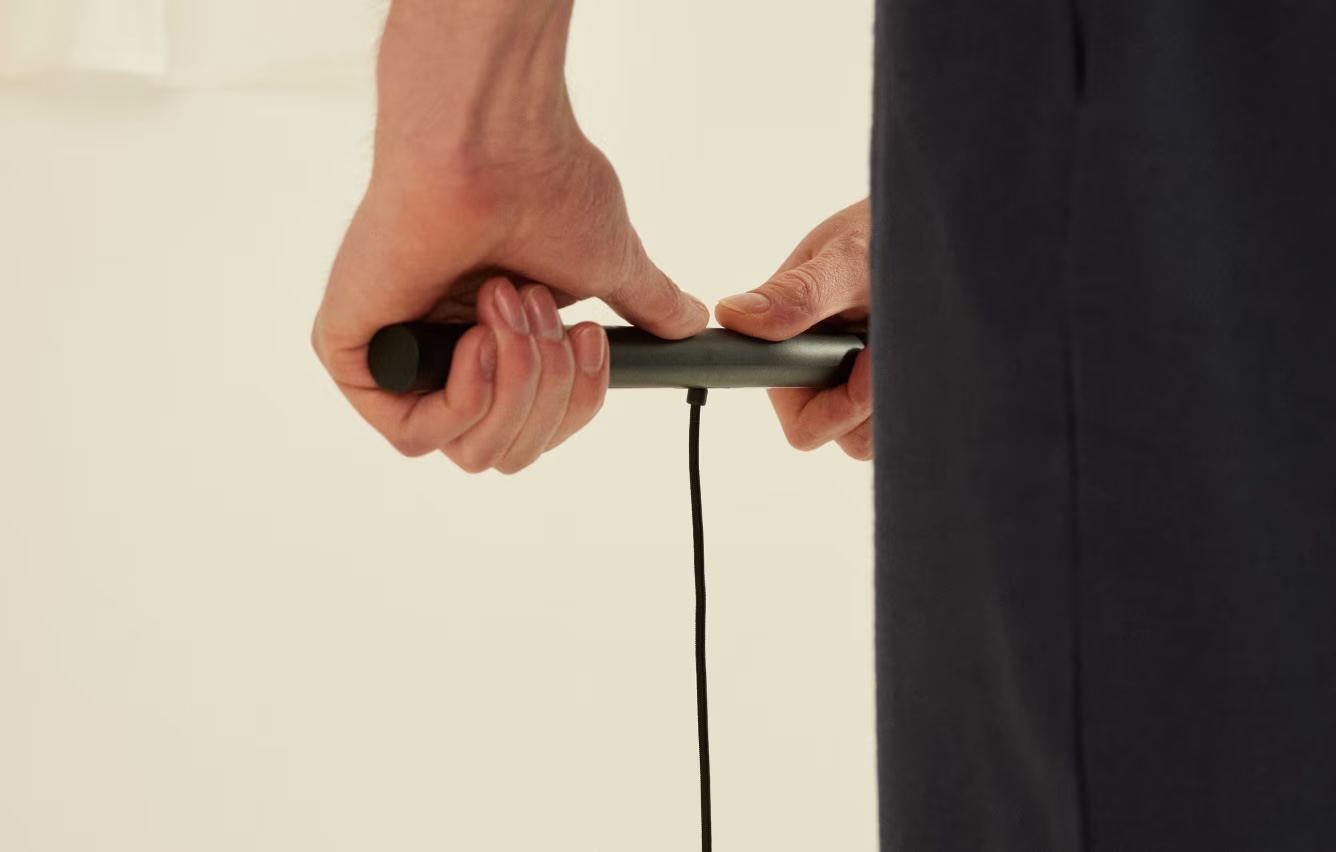![]()
When the holiday festivities are done with and January rolls around, people naturally look to improving their health and usually turn to smart devices to get their lifestyle back on track. Weight loss is typically part of that calculation, and while smart scales can help, there's little to distinguish between the majority of offerings on the market.
Weight and body composition analysis have become
de rigueur features these days, but Withings'
Body Scan Connected Health Station aims to go above and beyond the competition by offering an almost dizzying array of information about your physiological makeup.
Features
At $400 in the U.S. and £350 in the U.K., the Withings Body Scan is definitely at the higher end of the market for a smart scale. But when you consider its comprehensive set of body measurements, the price is a little easier to swallow. Biometrics include:
- Weight
- Metabolic Age
- Basal Metabolic Rate
- BMI
- Segmental body composition analysis including:
Muscle Mass (across five zones)
- Fat Mass (across five zones)
- Bone Mass
- Visceral Fat Index
- Lean Mass
- Water Mass
[*]Nerve health
[*]Pulse Wave Velocity
[*]ECG
[*]Vascular Age
[*]Heart Rate
Connecting via Wi-Fi and Bluetooth, the scale feeds all of this information into the Withings Health Mate app, which connects to Apple Health or Google Fit to provide a comprehensive hub for pretty much everything to do with your body (more on this later).
While the scale measures weight to 0.11 pounds (50g) precision and provides several insightful metrics not seen on other scales, its standout feature is the segmental body composition analysis. This is made possible by a retractable handle that has a series of metal plates on it. When standing on the scale and with the handle held in both hands, the device sends an imperceptible electrical current through your body and analyzes the fat and muscle mass for your torso, arms, and legs independently. The idea here is to spot fat and muscle imbalances so that you can target your efforts on the specific areas of your body that need more work.
A similar technique is also used to measure arterial stiffness, by tracking how long it takes for a wave created in the blood as the heart beats to arrive at the foot — a measure Withings calls Pulse Wave Velocity (PWV). The retractable handle also features a 6-lead ECG that, like Apple Watch, can detect AFib, the most common cardiac rhythm disturbance that can cause stroke and heart failure.
Due to differing clinical regulatory hurdles based on region, there are also a couple of differences between the Body Scan that's sold in the United States and models available in the EU.
The U.S. version includes an Electrodermal Activity (EDA) Score. This biomarker measures and assesses the activity of the sweat glands in the soles of your feet. According to Withings, the EDA score can provide care teams with insight into a patient's stress levels, diet, and overall health. Meanwhile, the EU version tracks nerve health by providing a Nerve Health Score, which can help to detect signs of peripheral autonomic neuropathies, a damage in small nerves, one of the most prevalent complications of diabetes, and other common chronic conditions.
Design and Performance
The Body Scan's design is robust and visually inoffensive, combining a sleek striped tempered glass surface with a durable plastic base. However, measuring approximately 12.5 x 14 inches, it's larger and quite a bit heavier than most smart scales. It also lacks non-slip feet on the base, so it's probably not suited to super-smooth flooring. The scale interface also includes a large, vibrant color display that's easy to read from standing height.
The initial setup process of the Body Scan is user-friendly and intuitive enough. After charging the scale via the supplied USB-C cable and downloading the Withings Health Mate app to your phone, pairing the scale is generally straightforward, although this can be subject to the usual challenges of Wi-Fi connectivity, such as signal strength and interference, so make sure you have coverage in your bathroom or wherever you plan to keep it.
To get a Body Scan, you need to stand on the scale barefoot and grip the handle with both hands. This allows the scale to conduct its comprehensive health check, but the duration for a complete scan is around one and a half minutes, so there's some waiting around. If you step off early, you'll still get your weight and some of the other standard biometrics, but things like Pulse Velocity and the segmental body composition analysis will usually fail. Fortunately, the app lets you customize which health metrics are recorded and displayed on the scale's screen, so you can tailor the experience to your own needs.
The scale can support up to eight individual user profiles, making it suitable for family use. However, its user recognition system is not foolproof and may occasionally misidentify the user standing on it, especially if two people in your household have a similar weight. Fortunately, the scale includes a neat solution that usually works – if it's not sure who you are, it will show you each family member's profile as a list, which you can scroll through by balancing on the foot of the direction you wish to scroll.
There are a few other notable features that may be appealing to different members of a household. An eyes-closed mode hides the numbers from the scale screen at weigh-ins, offering motivational messages instead, while a baby mode will give you an accurate weight of your child just by holding them in your arms and stepping on the scale. There's also a pregnancy mode and an athletic mode for tracking health with different measurement algorithms.
All of this is customizable within the app, which is generally well designed and intuitive. It includes a visual 3D map of your segmented body composition (which tells you whether you are in or outside a normal range versus other users like you), trending graphs for several metrics like weight and BMI, and actionable health insights based on your weekly and monthly trends. It also allows you to export a health report PDF for a healthcare specialist or personal trainer...
Click here to read rest of article
Article Link:
Withings Body Scan Review: High-End Health Monitoring at a High-End Price






